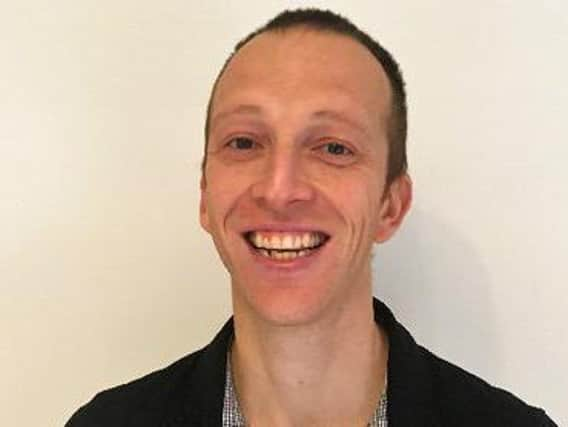Scottish doctor praised for role in European Tour's £2m plan for safe events


A Scottish doctor has been hailed by European Tour chief executive Keith Pelley for drawing up the £2 million-plus health strategy that aims to get the circuit back up and running.
Dr Andrew Murray, an Aberdonian, has been the circuit's chief medical officer for more than eight years and has now suddenly found himself as one of Pelley's key advisors as he plots the tour's first careful steps to returning.
Advertisement
Hide AdAdvertisement
Hide AdMurray has worked in the past with the Scottish Government promoting physical activity for health and Pelley revealed he's been leaning on him in the quest to deliver a robust health strategy.
"Dr Murray has become an integral part of my executive leadership team," admitted the Canadian as he outlined a plan to restart with a six-event UK Swing in July and August. "I really cannot thank him enough.
"We are incredibly fortunate to be guided by him and his past experience in working for government - specifically in the area of public health - has been invaluable.
"One of the key components of our discussions with the government has been our comprehensive medical health strategy, which alone will cost us for all three tours well north of 2 million, but it is absolutely essential."
Before travelling to the UK to play in the first six events, players will be required to have had an antigen test and will undergo a second one - a "gold standard" one in this instance - when they arrive.
They will then be tested on a daily basis for Covid-19 systems as part of a rigorous process set to be implemented by a team led by Murray, who once ran seven ultramarathons on seven continents within seven days to promote the value of exercise for health.
"Keith and his team have consistently put the health and safety of our players and staff, and those in the countries we play, at the forefront of the many discussions we have had over the past few months," he said.
"What we've done is we've utilised robust risk assessment processes from the World Health Organisation, and each national government. We are putting in place measures based on international best practice. These include social distancing, enhanced hygiene, increased medical capacity and testing.
Advertisement
Hide AdAdvertisement
Hide Ad"Having reviewed this with the UK Government, the European Tour have carefully planned a return, which we will fully support with our medical strategy.
"The measures we are putting into place mean that our players are at a much lower risk of having the virus and of running into issues than other travellers."
In order to keep the risk as low as possible, the number of people on site at the venues for the six events set to get the circuit restarted will not exceed 500 at any one time.
"What we are doing is setting up a process as we understand it at the present moment," added Murray. "However, we will continue to evolve with international and national best practice.
"For each event, we are working with the local government to ensure what we do is robust and puts the safety of our players, our caddies and our staff right at the forefront of it."
While the tournaments in England and Wales later in the summer will be behind closed doors, it remains to be seen if that will also be the case in October for the Aberdeen Standard Investments Scottish Open and the BMW PGA Championship.
"On the spectator thing, we absolutely recognise the regulations in the many countries we play all across the world but what the governments also recognise is the benefits of golf and the benefits of people coming to our golf tournaments," observed Murray.
"We know that physical inactivity is responsible for more than 3 million deaths worldwide. We know that walking can provide physical mental and social health benefits, with people coming to our tournaments last year and taking on average 11,500 steps.
Advertisement
Hide AdAdvertisement
Hide Ad"So certainly while our numbers are restricted at present, we are looking to work out what the benefits of people being on site are, what the potential downsides are, and then have sensible dialogue with government regarding spectators on site."
A message from the Editor:
Thank you for reading this story on our website. While I have your attention, I also have an important request to make of you.
With the coronavirus lockdown having a major impact on many of our advertisers - and consequently the revenue we receive - we are more reliant than ever on you taking out a digital subscription.
Subscribe to scotsman.com and enjoy unlimited access to Scottish news and information online and on our app. With a digital subscription, you can read more than 5 articles, see fewer ads, enjoy faster load times, and get access to exclusive newsletters and content. Visit https://www.scotsman.com/subscriptions now to sign up.
Our journalism costs money and we rely on advertising, print and digital revenues to help to support them. By supporting us, we are able to support you in providing trusted, fact-checked content for this website.
Joy Yates
Editorial Director